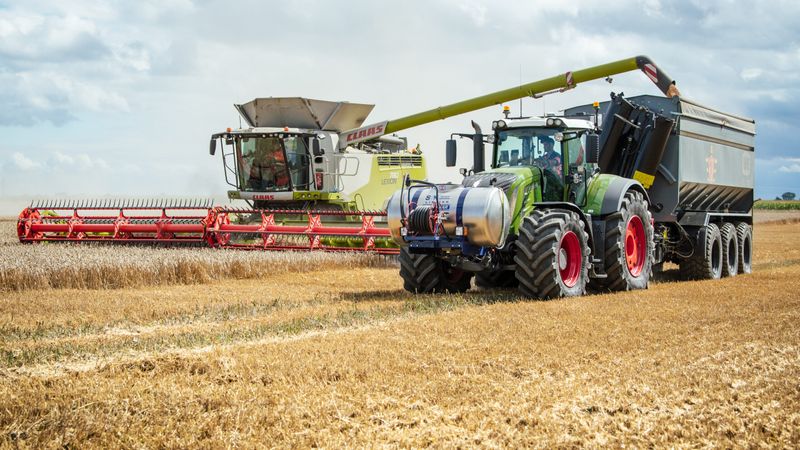Engineering the Fields: Dyson's Leap from Gadgets to Agriculture
How a Tech Giant is Redefining Farming with Innovation and Sustainability

Photo Credit: Dyson Farming
This article was discussed in our Next Byte podcast.
The full article will continue below.
Dyson, a brand synonymous with innovation in vacuum cleaners, hairdryers, and robotics, has embarked on an ambitious journey into agriculture, transforming it with the same engineering excellence that characterizes their consumer products. Over a decade ago, Dyson began acquiring farms across the UK, now totaling 36,000 acres in Lincolnshire, Oxfordshire, Gloucestershire, and Somerset. This venture is far from a side project; it's an integration of high technology and sustainable practices aimed at redefining farming.
At the heart of Dyson's farming initiative is a commitment to agricultural improvement and environmental stewardship. The company has made significant strides in enhancing farm operations, including optimizing water management and soil health through drainage and maintenance efforts. A notable aspect of their approach is the dedication to biodiversity, with around 4,000 acres set aside for natural habitats, underlining a holistic vision that marries conventional farming with sustainability.
Dyson's foray into agriculture is driven by a vision to regenerate the soil, improve land management, and advance sustainable farming. The initiative employs a regenerative farming model, incorporating livestock to improve soil quality and thereby produce higher-quality food. This model is not just about farming efficiency but also about embracing technology and innovation to achieve sustainability and self-sufficiency.
A standout feature of Dyson's approach is the use of an anaerobic digester, which converts crops into gas to generate electricity, supporting around 10,000 homes. This circular farming model emphasizes the reuse of waste products, with digestate from the process used as a natural fertilizer, showcasing a sustainable loop that benefits both the farm and the surrounding environment. Furthermore, they ensure that no energy is wasted either, with excess heat from the process being used to keep the greenhouse warm for strawberry cultivation.
Dyson has also innovated in crop cultivation, using technology like ultraviolet light and robotics to grow strawberries in a new 15-acre glasshouse in Carrington, Lincolnshire. This glasshouse not only advances sustainable farming practices but also extends the British strawberry growing season, reducing the need for imports and the associated food miles.
The impacts of Dyson's farming initiative are manifold. By enhancing biodiversity, improving soil health, and employing circular farming practices, Dyson is not only producing better-tasting food but also contributing to environmental conservation. Their use of technology and sustainable practices in farming points towards a future where agriculture is not only about food production but also about ecological balance and resource efficiency.
Dyson's journey into agriculture reflects a broader ambition to apply engineering and technological expertise to one of the oldest human endeavors, farming. By doing so, Dyson is reimagining what is possible in agriculture, making it a model for sustainable and technologically advanced farming practices worldwide.
For a closer look at Dyson's innovative farming practices and their implications for sustainable agriculture, you can explore more through Dyson Farming's official site.
